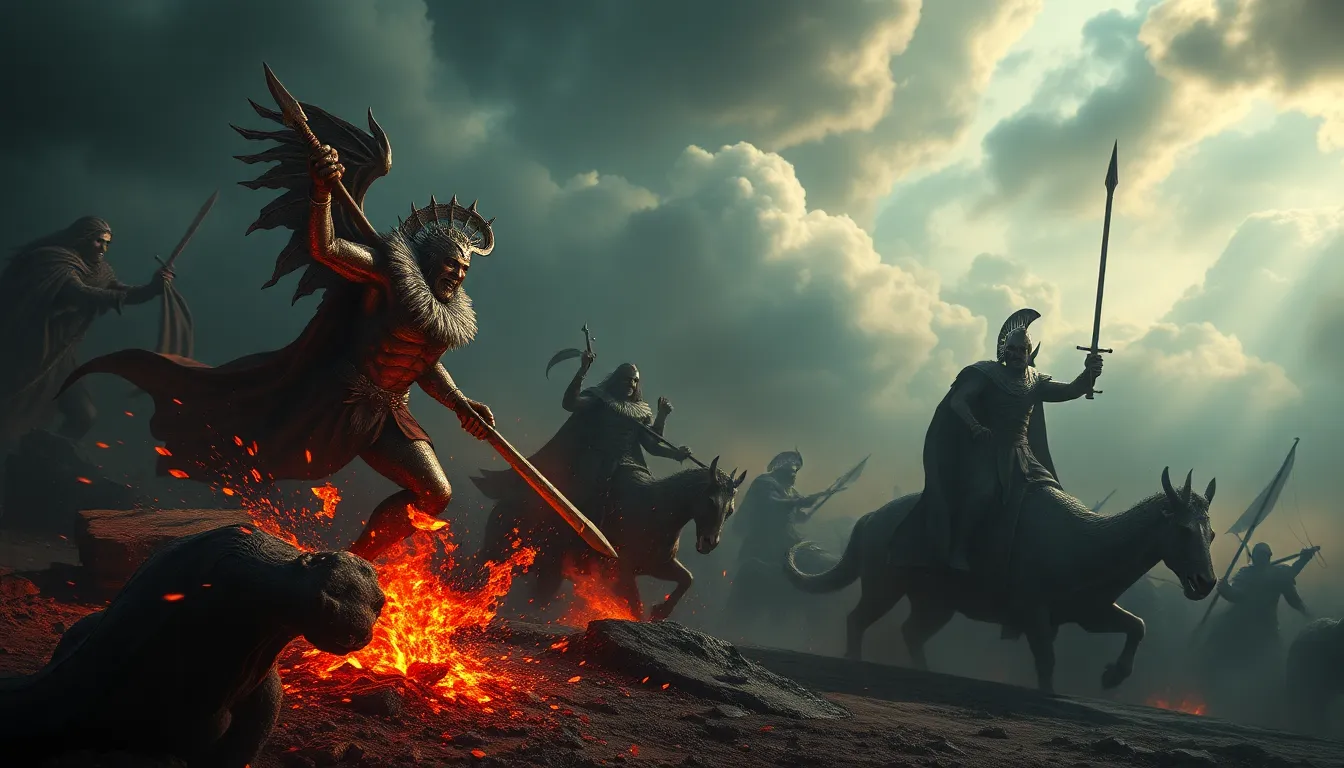The Role of Fate and Prophecy in Norse Mythology
Norse mythology is steeped in the concepts of fate and prophecy, shaping the destinies of gods and mortals alike. These themes play a crucial role in defining the narrative structure and outcomes of various tales within the rich tapestry of Norse myths.
The Concept of Fate in Norse Mythology
In Norse mythology, fate, known as “Wyrd” or “Orlog,” is perceived as an unchangeable course of events that govern the lives of all beings, be they gods, giants, or humans. The Norns, three powerful female beings, are responsible for weaving the intricate web of fate. They carve the destiny of individuals by spinning the strands of past, present, and future into patterns that cannot be altered.
The Influence of Prophecy in Norse Mythology
Prophecy, often delivered by seers, is a prevalent element in Norse myths. Prophecies foretell significant events that will come to pass, influencing the decisions and actions of the characters involved. The most well-known prophecy in Norse mythology is the prophecy of Ragnarök, the impending apocalypse that will result in the end of the world and the rebirth of a new one.
The Role of Odin, the All-Father
Odin, the chief god in Norse mythology, holds a unique connection to both fate and prophecy. As the god of wisdom, he seeks knowledge from the spirits and the Well of Urd, often sacrificing an eye. Odin’s insatiable thirst for knowledge drives him to pursue prophecies, even those that foretell his own demise during Ragnarök, showcasing the intricate relationship between fate and the actions of the gods.
Embracing Fate in Norse Culture
For the Norse people, recognizing and accepting one’s fate was integral to their worldview. Unlike the concept of blind determinism, the notion of fate in Norse mythology allowed for bravery in the face of impending doom and instilled resilience in the hearts of the characters as they faced their destinies head-on.
Understanding the role of fate and prophecy in Norse mythology provides insights into the belief systems and values of ancient Norse cultures, shedding light on how these concepts shaped their narratives and understanding of the world.
FAQ about the Role of Fate and Prophecy in Norse Mythology
What is the concept of fate in Norse mythology?
In Norse mythology, the concept of fate, often referred to as “Wyrd” or “Orlog,” dictates the predetermined course of events that cannot be changed. It is believed that the Norns, female beings, weave the threads of fate that shape the lives of gods, humans, and all beings in the cosmos.
How do prophecies influence the Norse mythological world?
Prophecies play a significant role in Norse mythology, shaping the actions of gods and mortals alike. Seers and oracles such as the Volva or the god Odin himself are often consulted for insights into the future. Prophecies, although foretelling events, can sometimes lead to unintended consequences as characters try to change or fulfill them.
Can fate be altered in Norse mythology?
While fate is generally seen as unchangeable in Norse mythology, there are instances where individuals attempt to defy or alter their destiny. However, such actions often lead to tragic outcomes or unintended consequences. The idea of fate being absolute is deeply rooted in the Norse belief system.



